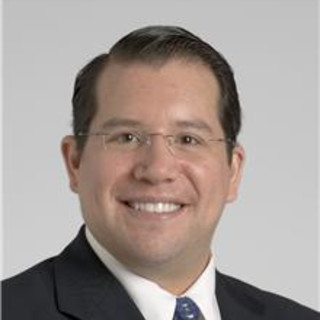
The health care industry is characterized by having a continuous evolution and development; there is constant testing of innovation in health care delivery as well as the alignment of payment models with the quality of clinical outcomes and care. All these changes pose a strong influence in the way health care delivery is provided, with both direct and indirect consequences on frontline hospitalists’ professional and personal experience.
In order to effectively adapt and achieve continuous longitudinal personal and professional growth, the health care providers and leaders must develop very specific skills and competencies, which include, but are not limited to, emotional intelligence, grit, enhanced communication skills, and ability to generate vision and inspire others.
Effective leadership promotes sustainability and cohesiveness of the hospitalist group; mentorship and meaningful guidance inspires and aims to “get the best out” of each member of the group. Building a strong and cohesive team is paramount to ensuring sustainability of the group and effective alignment of all the team members toward the vision and mission of the group.
An effective leader must encourage awareness and insight for each team member about their own strengths and weaknesses that directly impact their opportunities for further professional growth.
At the past SHM 2019, in National Harbor, MD, we presented a workshop aiming to enhance leaders’ ability to adapt to change. The ability to cope with change is also needed in the frontline hospitalists, as we also deal with other coworkers and environmental situations that we may not be able to control and have to maintain the highest standards of behavior and role-modeling to others.
We focused on three relevant aspects to enhance optimal adaptability to change: development of emotional intelligence skills, keen understanding of the process of successful team building, and acknowledging and developing grit.
Emotional intelligence skills create opportunity to gain insight into the internal feelings toward external environment and respond in an adequate way to promote growth. People with a high degree of emotional intelligence know what they're feeling, what their emotions mean, and how these emotions can affect other people.
Understanding how a team is built allows leaders to create standard expectations for all to work in a collaborative fashion. We discussed the elements outlined by Lencioni on dysfunctional organizations, which are encompassed in the acronym “TEAM”: decreased Trust, poor Execution and commitment, decreased Accountability, and poor Management. The team must have trust in the leader and each other. The leader must be able to have strong executive capabilities understanding that if conflict arises, must discuss in an open and respectful fashion. The strength if the group strives from itself — such as Rudyard Kipling stated “the strength of the wolf is the pack, the strength of the pack is the wolf” — we need to promote accountability. The collective results take priority over the individual goals. Though certainly if the individual goals and objectives allow for personal growth but also strengthen the team, they are welcomed.
The above components of a dysfunctional team can ideally be avoided by a careful understanding and implementation of the team building stages: Forming, Storming, Norming and Performing. When forming a team, there must be coherence and alignment of the organizational and team member goals. There will always be differences in the process of team building and growth — and the team leadership must have ability to handle conflict and reconcile ideas; this is the storming phase. The norming phase comes along to provide rules and enhance accountability. A good norming phase will set up expectations that all members must abide by, and having clarity on these expectations avoid future conflicts. The performing phase must ideally be visualized as a well-functioning cohesive team with common goals where there is psychological safety and ability to solve conflict effectively.
And lastly, we discussed the relevance of developing grit, which Dr. Angela Duckworth has defined as a combination of passion and perseverance for achieving long-term goals. In a health care team, grit is shown by a continuous growth mindset, resilience and certainly, identification with the group. Individuals with grit are courageous, passionate, and ambitious, yet realistic about their abilities. A leader with grit will be able to successfully define their purpose and value proposition, change the reaction to failure, and be consistently passionate and persistent. But grit also helps the frontline hospitalist deal with ineffective leadership or disruptive colleagues: be able to understand their inner motivation, be able to keep a positive mindset while being able to “ride the highs and lows” and learn from opportunities.
The presence of emotional intelligence and grit are invaluable assets that permit any professional to have personal growth as well as to thrive within the organizational level. There are multiple external courses and training resources to understand and develop both skills. We have strong confidence that these are necessary tools for all hospitalists to continue being successful leaders in an always changing and thriving environment.





